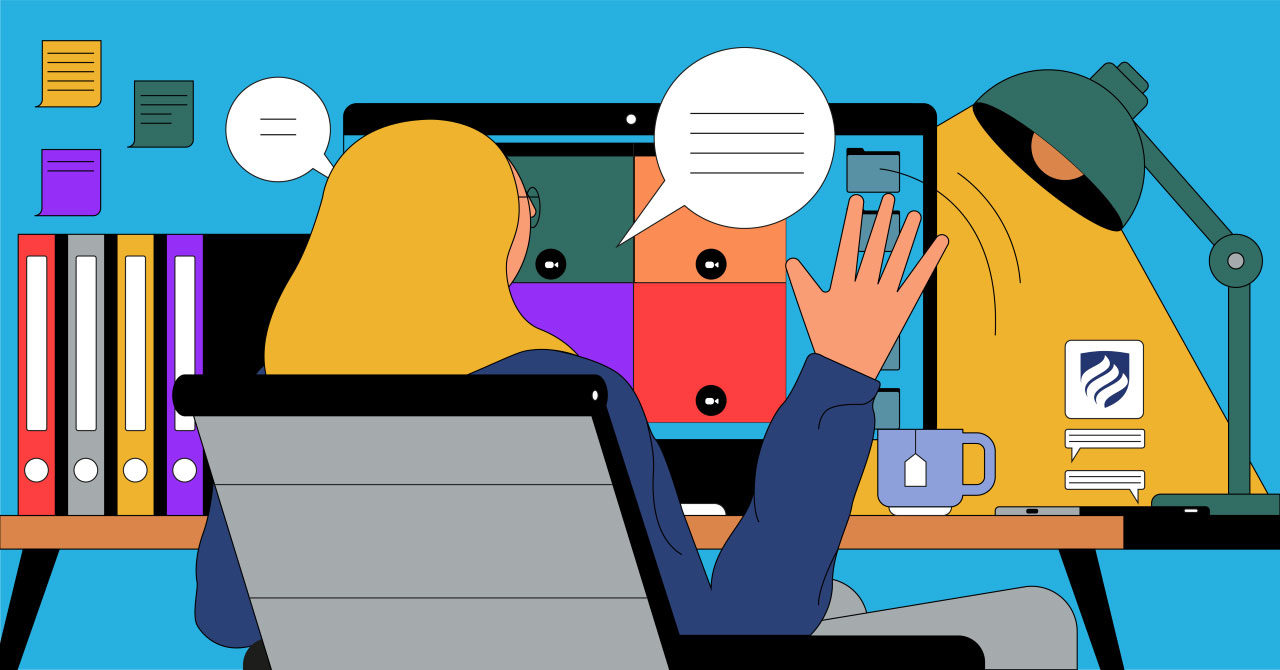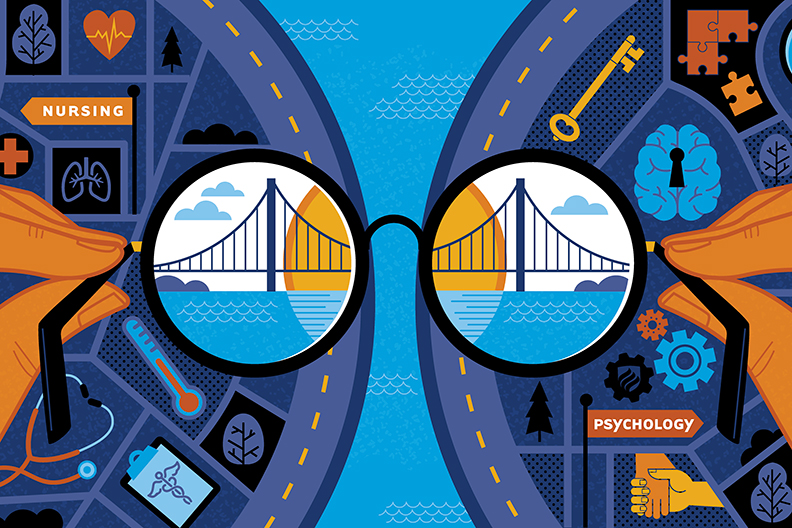5 Tips to Master College from Home
UNDERGRADUATE PROGRAMS | 4 MIN READ

The coronavirus pandemic forced the hands of many students—and universities—last year when it came to embracing online learning and especially college from home. But the approach is far from new. More than a third of students were enrolled in an online course last year. Almost one in six students were exclusively taking online classes.
Some students earn a degree without ever setting foot in a traditional classroom. Still, it can be an adjustment. No more sliding into a seat in a crowded classroom and peaking at your neighbor’s notes if you miss something. You won’t be relying as much on nonverbal cues or reading the room during lectures and class presentations.
But the flexibility, convenience and affordability can make online school an attractive option. How do you make the most of college from home? How can you ensure that you will succeed in online classes?
Follow these five tips:
1. Get Yourself Organized
First, find a dedicated workspace where you can be comfortable (but not too comfortable—no napping!) and won’t be interrupted. Gather any supplies you will need beforehand: papers, books, pens. Make it as easy as possible to stay focused. No television on in the background. Turn off unneeded notifications on your phone. Don’t try to sneak in a load of laundry in between lecture topics.
If you want a change of scenery from your house, try working at a coffee shop or library. In that case, you’ll want some high-quality headphones so you don’t disturb others. After the first class, keep all your school supplies together, and handy, so you’re not scrambling each week.
2. Test Out Your Technology
Typically, a laptop or desktop computer and a decent WiFi connection will cover your online learning needs. If you’re struggling with technology—either you’re not sure how different functions work or your hardware seems glitchy, contact your college. They may be able to provide resources, training or even discounts on new devices.
Beyond the nuts and bolts of attending online classes, use technology to your advantage. Keep track of due dates on your phone. Access the school’s online portal for updates and study tools. And, yes, use your phone! It can be a great resource to track deadlines and organize.
3. Establish and Maintain Communication with Your Professor
Maybe even more than in a traditional class, you need to know your professor as you take on college from home. Since you won’t be hanging around after class to ask questions or problem solve, send an email or call their office early in the semester. Best to establish contact before there is an issue.
Don’t hesitate to seek clarification on lessons, get feedback on assignments or just pick their brain about the subject matter—or your major. Professors are one of the best resources you have, so don’t be shy.
4. Don’t Go it Alone
Collaboration is as important as ever when you take an online course. This is not the time to isolate, even though you may not be meeting in person. Connect to classmates for study groups—Zoom, Skype and FaceTime are great tools—or just moral support.
Tap a tutor if you think you’ll need one. Call your adviser. See if the school’s writing lab offers online help. For its online students, Elmhurst University offers video resources and strategies to maximize your online learning.
5. Follow a Schedule—and Include Breaks
Figure out when you are most productive, and make a schedule that works best for you. Include time for reading and class preparation, study time, presentation time.
But be sure to step away from the computer, too. Give your mind and body a break, so you can come back fresh.
College From Home—Made Easier
Learn more about the academic support you can find at Elmhurst University. Let us know what you are interested in studying, and we’ll share all the ways Elmhurst can help. Simply fill in the form below!




